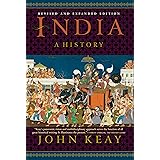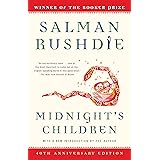
Download the free Kindle app and start reading Kindle books instantly on your smartphone, tablet, or computer - no Kindle device required.
Read instantly on your browser with Kindle for Web.
Using your mobile phone camera - scan the code below and download the Kindle app.

OK
 Audible sample Sample
Audible sample Sample 


India: A Million Mutinies Now Hardcover – January 1, 1991
- Print length521 pages
- LanguageEnglish
- PublisherViking
- Publication dateJanuary 1, 1991
- Dimensions6.5 x 1.69 x 9.41 inches
- ISBN-100670837024
- ISBN-13978-0670837021
The Amazon Book Review
Book recommendations, author interviews, editors' picks, and more. Read it now.
Similar items that may deliver to you quickly
Editorial Reviews
From Publishers Weekly
Copyright 1990 Reed Business Information, Inc.
From Library Journal
Copyright 1990 Reed Business Information, Inc.
Product details
- Publisher : Viking (January 1, 1991)
- Language : English
- Hardcover : 521 pages
- ISBN-10 : 0670837024
- ISBN-13 : 978-0670837021
- Item Weight : 2.1 pounds
- Dimensions : 6.5 x 1.69 x 9.41 inches
- Customer Reviews:
About the author

Discover more of the author’s books, see similar authors, read author blogs and more
Customer reviews
Customer Reviews, including Product Star Ratings help customers to learn more about the product and decide whether it is the right product for them.
To calculate the overall star rating and percentage breakdown by star, we don’t use a simple average. Instead, our system considers things like how recent a review is and if the reviewer bought the item on Amazon. It also analyzed reviews to verify trustworthiness.
Learn more how customers reviews work on Amazon-
Top reviews
Top reviews from the United States
There was a problem filtering reviews right now. Please try again later.
India: A Million Mutinies Now was originally published in 1990, and this edition brings it back into availability, with a new preface by the author. It is the third volume of a trilogy written by Naipaul on India, the first two being An Area of Darkness , and India: A Wounded Civilization . It does date back 20 years, and for that reason does not take into account the many developments and changes in India since that time, so if you must have something that reflects today's India in all respects, this may fall short in some ways.
Author V. S. Naipaul (2001 Nobel Prize in Literature) is acclaimed both for his fiction and non-fiction. He was born in Chaguanas, Trinidad and Tobago, to parents of Indian descent. In this book, he describes India through a series of stories covering people from many castes and different backgrounds. As these various individuals stories are told, and as you begin to grasp how they deal with the day-to-day problems of living in an overcrouded country, and surviving within the caste system still in place, you find that your understanding of India is beginning to come together. It is a long book (500+ pages), full of interesting vignettes and covering a very wide variety of individuals from all walks of Indian life.
If you are considering purchase of this book, then I would also refer you to the Amazon comments to the earlier 1990 edition ( India: A Million Mutinies Now ), which remain valid for this new printing. As alternates or supplements to this book, I would also suggest India: A Portrait , recently issued, and I am sure that there are many others. I will continue to add to this review if I do come across other books that I feel should also be mentioned.
Top reviews from other countries
Reading between the lines, however, you can tell that Naipaul has mixed feelings about India. Apart from the revulsion at the filth and decay, he can not hide his despair of the Indian character. He sees Indians as self-destructive, always letting unnecessary foibles and squabbles obstruct progress. For Naipaul the class-warriors of the Dravidian movement in Tamil Nadu have replaced a wise culture with a wasteland, the self-regarding idleness of Bengalis has turned Calcutta into a sewer and the Sikhs of Northwest India are persecuted because, deep down, that is their raison d'être.
It's a point of view.
The format of "India" is almost oral history or anthropology. He lets Indians, mostly middle- and upper-class, tell the stories of their lives. Gradually these tales coalesce in the reader's mind and Naipaul's collage of caste, class and ethnicity emerges. The language is clear and engaging; it is hard to imagine a more entertaining introduction to the social processes at work in modern India. Naipaul's own viewpoint emerges gradually between the lines. And he is honest about his own place in the book, not glamorising his trip with chichi exoticism like your average poncey travel-writer, but just making himself a man who travels from hotel to hotel and talks to Indians.
Although I have been to India on a couple of business trips and have worked several years with many Indian people, I had no well founded idea about the country and its people.
Mr Naipaul, born in Trinidad of Indian origins, retails in this book, his experiences, and those of the people with whom he meets, in a detailed and enthralling way. His style is easy to read and transmitted to me the feeling that I was sometimes present at his "interviews". The enormous success that V.S. Naipaul has deservedly enjoyed over the years, enables him, during this India visit, to meet and speak with people whom the average visitor would not meet and to cover subjects which the average visitor would not consider. Mr Naipaul realises that and takes the time to give his reader the necessary insight.
This book can be strongly recommended as just a very good read but the information about India is an extra bonus.










